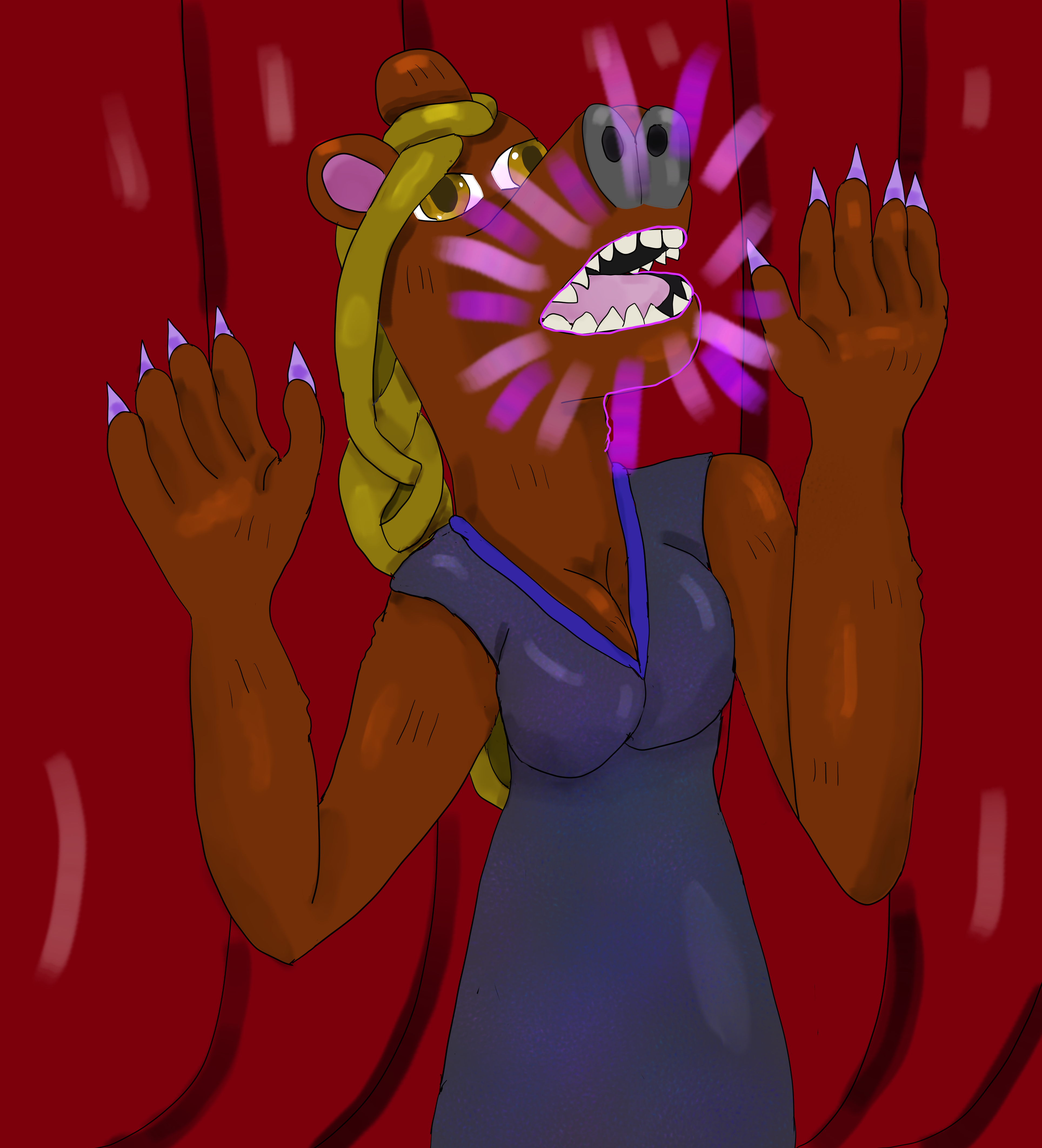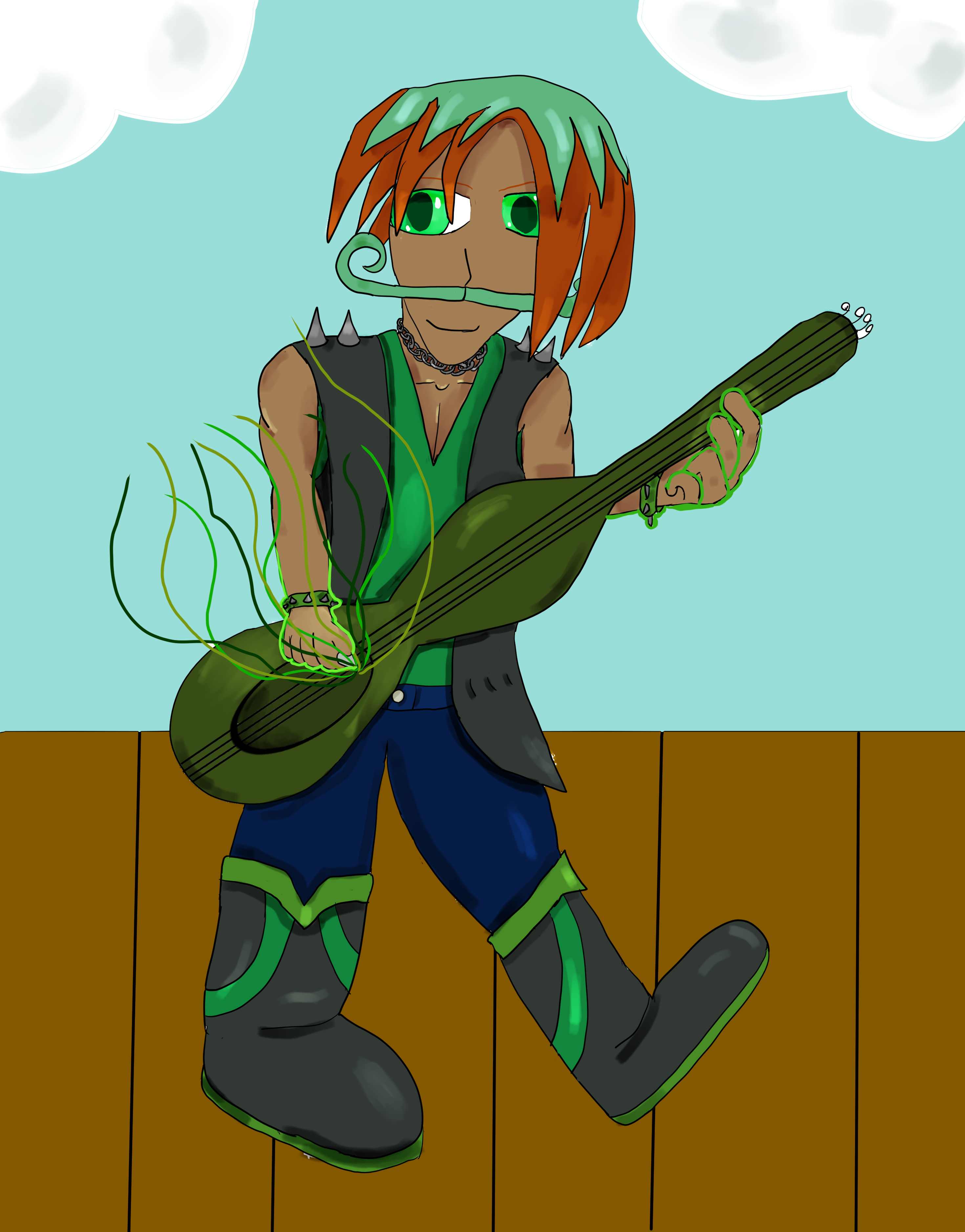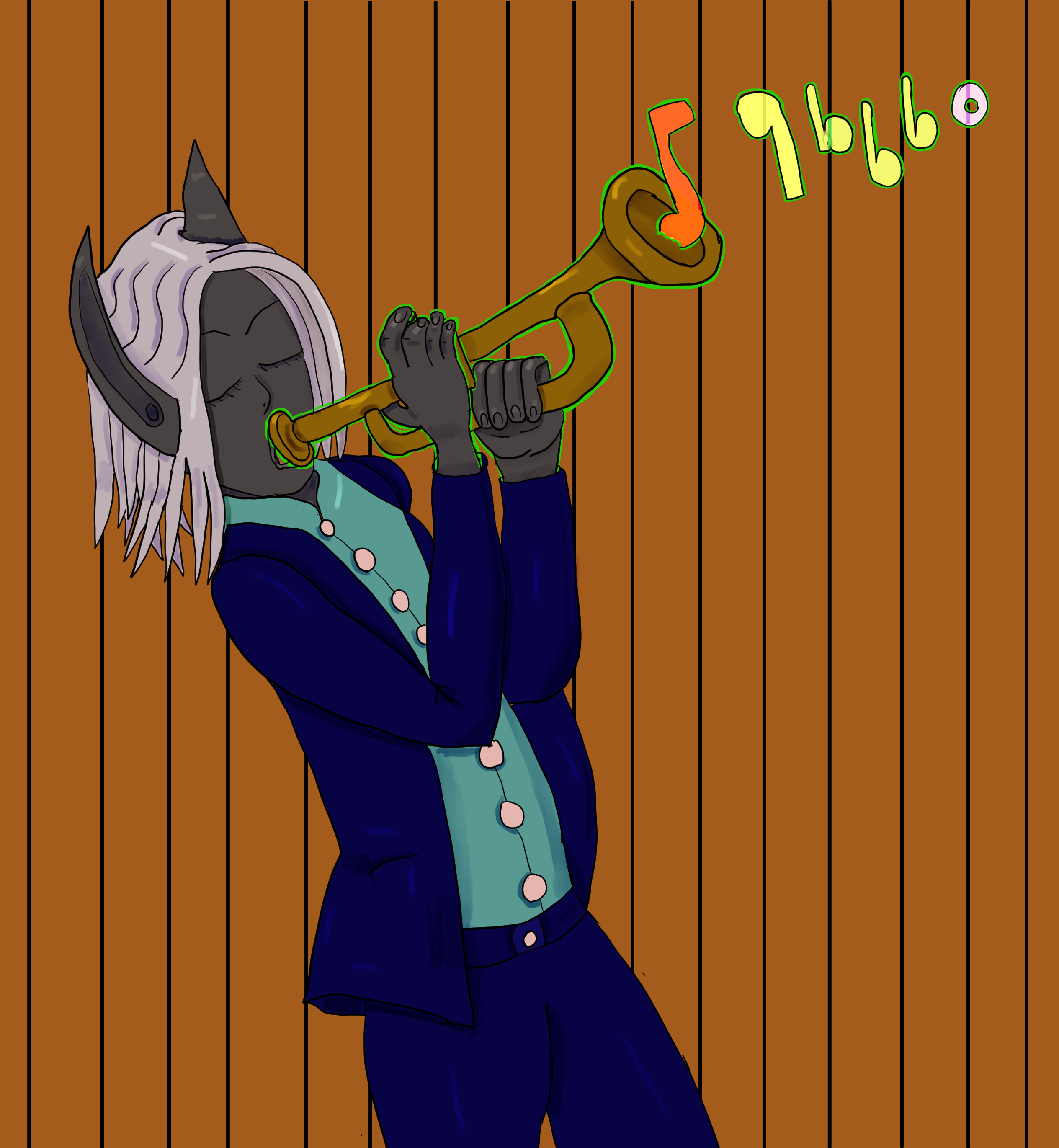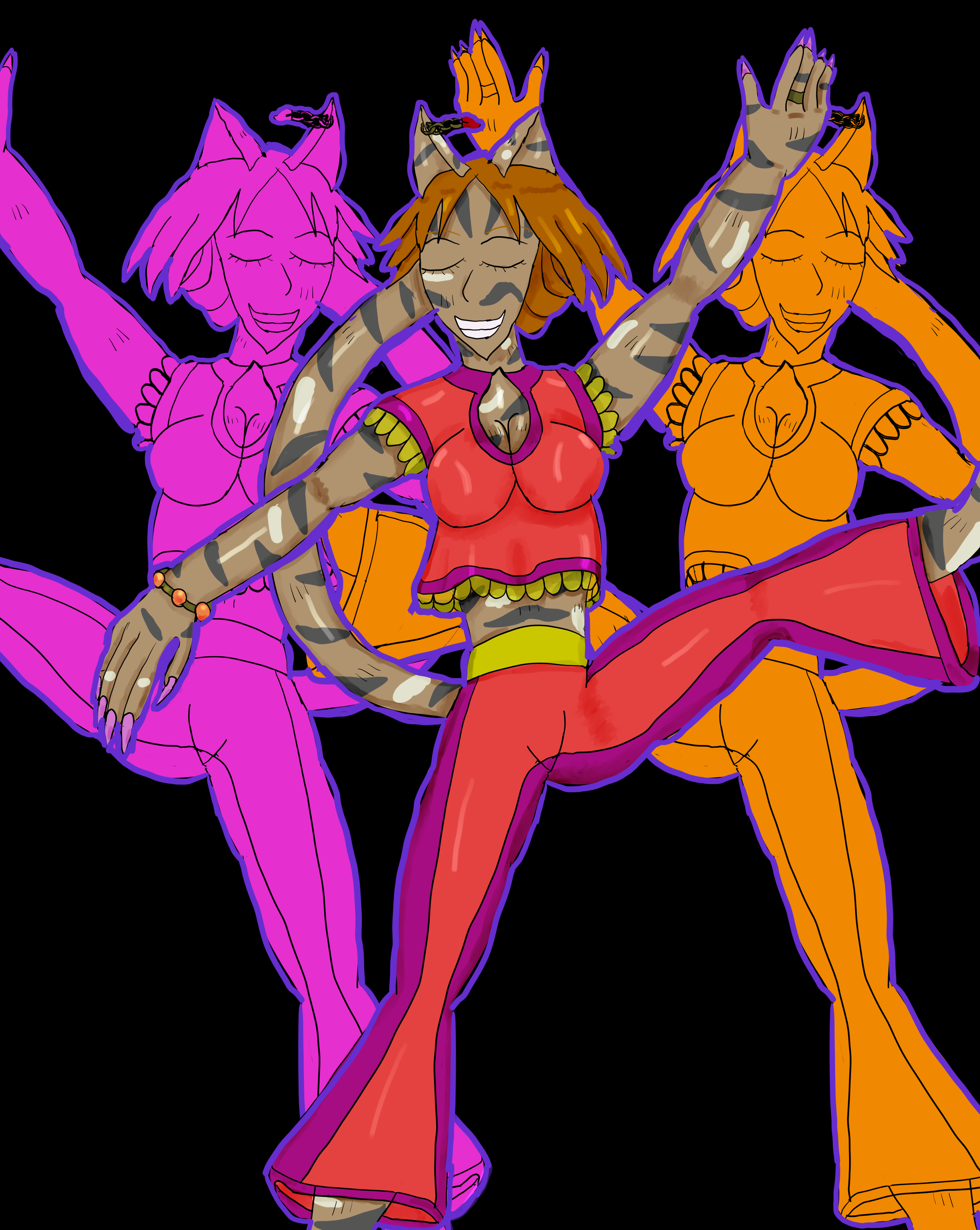Bardic Magic
Do you enjoy the thrill of live theater, the magic of song, or the power of storytelling that stirs the soul? Perhaps you frequent your local tavern, enthralled by the tales of a skillful bard, or you attend concerts where magnificent visuals combine flawlessly with music, allowing you to experience the singer's soul.
All of this is made possible by Bardic Magic is a unique form of spell work that channels mana through rhythm and melody, transforming performances in extraordinary ways. This magic can enhance, transform, and even actualize portions of a performance, depending on the performer's expertise.
In the present era, Bardic Magic is essential in most live performances, captivating audiences and elevating the experience beyond just sight and sound. It ensures that each performance is not just seen or heard, but also felt deep in their soul.
Everything changed when Lilith, the new vocalist, joined the troupe. Many people felt she had a natural magical ability that made her voice stronger, smoother, and richer in tone. Her fellow performers, Raymond and Anastasia, were fascinated and asked her about it. To their amazement, Lilith revealed that she wasn't using magic on her voice at all, but rather experimenting with mana while singing. She learned that by gradually moving mana around her vocal cords, she could improve or change the resonance of her voice.
This insight prompted The Cast of Dreamers to investigate the relationship between sound, mana, and emotion. It was widely acknowledged that strong emotions might influence magic—heightened excitement may make spells simpler to cast, whereas fear or worry could cause magic to activate unexpectedly. Building on this idea, the group experimented with how mana reacts to sound, rhythm, and intent.
After years of study and experimentation, they eventually created the technique of using Bardic Magic to improve their performances. They began by focusing on sound-based effects, but their discoveries soon led to visual and illusionary upgrades, forever changing theatrical presentations. Because of their determination in exploring magic beyond traditional conventions, they discovered that mana, like ceremonial magic and symbolic spell casting, responds to emotions and ordered patterns.
String Instruments - Learn your instrument thoroughly. Use the pick, bow, or fingertips to channel mana and infuse energy into the strings, shaping and empowering your music.
Wind instruments - Breath and control are essential. Magic travels through the air, sculpted by your breath and finger location to produce complicated effects.
Key Instruments -The hardest craft of all instruments. Your fingers must infuse each keypress with mana in precise time, weaving spells into chords and harmonies as you play.
Performance Style (Dance/Theater): A combination of movement, rhythm, and will. Mana is incorporated into gestures, choreography, and dramatic beats. This is the most adaptable style, frequently combining with other genres to create huge, full-scale magical performances.
History
Bardic Magic originated with a legendary ensemble known as The Cast of Dreamers. Before their time, wizards were the primary practitioners of performance-enhancing magic, with actors and backstage workers occasionally employing minor spells for special effects. However, their performances occasionally featured unexpected magical flares—illusions becoming more vivid, stage lights shifting hue as if stirred by unseen hands—leading some to assume these occurrences were divine blessings or happy accidents.Everything changed when Lilith, the new vocalist, joined the troupe. Many people felt she had a natural magical ability that made her voice stronger, smoother, and richer in tone. Her fellow performers, Raymond and Anastasia, were fascinated and asked her about it. To their amazement, Lilith revealed that she wasn't using magic on her voice at all, but rather experimenting with mana while singing. She learned that by gradually moving mana around her vocal cords, she could improve or change the resonance of her voice.
This insight prompted The Cast of Dreamers to investigate the relationship between sound, mana, and emotion. It was widely acknowledged that strong emotions might influence magic—heightened excitement may make spells simpler to cast, whereas fear or worry could cause magic to activate unexpectedly. Building on this idea, the group experimented with how mana reacts to sound, rhythm, and intent.
After years of study and experimentation, they eventually created the technique of using Bardic Magic to improve their performances. They began by focusing on sound-based effects, but their discoveries soon led to visual and illusionary upgrades, forever changing theatrical presentations. Because of their determination in exploring magic beyond traditional conventions, they discovered that mana, like ceremonial magic and symbolic spell casting, responds to emotions and ordered patterns.
Type of Performance
Singing - Perfect your voice and sync your melodies with the flow of mana. Magic must be precisely integrated into the chorus, rising and falling with or sometimes not with the song's beat.String Instruments - Learn your instrument thoroughly. Use the pick, bow, or fingertips to channel mana and infuse energy into the strings, shaping and empowering your music.
Wind instruments - Breath and control are essential. Magic travels through the air, sculpted by your breath and finger location to produce complicated effects.
Key Instruments -The hardest craft of all instruments. Your fingers must infuse each keypress with mana in precise time, weaving spells into chords and harmonies as you play.
Performance Style (Dance/Theater): A combination of movement, rhythm, and will. Mana is incorporated into gestures, choreography, and dramatic beats. This is the most adaptable style, frequently combining with other genres to create huge, full-scale magical performances.










It's unrelated but as someone who puts all of his effort into writing and using (albeit heavily scrutinized and tailored to themes) AI art to represent his writing, I respect your effort to not-only write everything but-also draw it all regardless of the result (not saying your art is bad at-all btw) just genuinely a really respectable amount of effort. Kudos man, bravo, I dare say.
Thank you for your compliment. I appreciate the praise for my efforts, and I am honored that they are being seen.